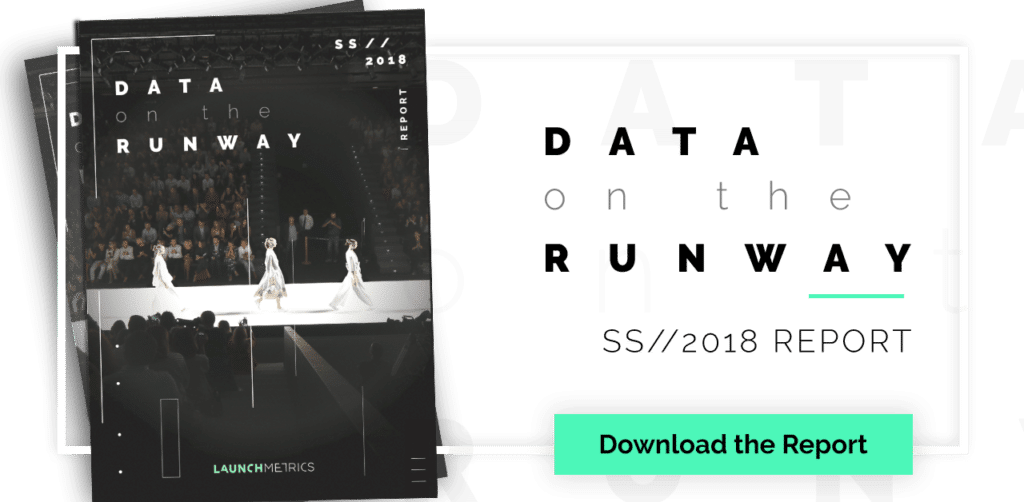Pascal Morand, Executive President at the Fédération de la Haute Couture et de la Mode, gives us his thoughts on the evolution of fashion shows, valuable insights which we featured in Data on the Runway SS18, where we have analyzed the four main Fashion Weeks and consulted specialists regarding the future of the industry. Morand is known for promoting French fashion all around the world and is very familiar with the developments in the industry. Not only is Morand an economist and a member of the Technology Academy, he also teaches at ESCP Eurpoe and is a board member at the French Textile and Clothing Institute, at DEFI and the Union Française des Arts et du Costume.

In your opinion, what is the biggest challenge French designers face today?
The main challenge French designers face, as well as designers in general, is to follow a sustainable business model while being responsive to the constant evolution of the fashion industry. This pushes designers to digitalize in all areas and to remain innovative and creative.
How do you think technology and digitalization have impacted the fashion industry?
Technology and digitalization have been impacting the fashion industry for a long time. It started in the ’90s with the revolution of supply chains, where the value chain was separated into multiple entities, forcing logistical systems to be reorganized and built. The Internet completely changed the relationship between supplier and consumer. There will soon be many upcoming changes due to Big Data, the Internet of Things, Artificial Intelligence, immersive technologies, etc. This represents another huge revolution and we have only just begun.
What do you think about the new influencers/opinion leaders that are influencing the front rows of Fashion Weeks now? What is their future?
The new influencers we see today enrich the global vision and communication of Fashion. The most important thing to understand is to what extent they value or will value creativity, at a time where creativity is more important than ever for the fashion and creative industries – notably through creativity-driven marketing. Some bloggers will become great fashion journalists, no matter how their comments and images will be spread out, and others will not.
How are Fashion Weeks changing? How do you see them in 10 years?
Having been absent from Fashion Weeks for 10 years before jumping back in last year, I am very impressed by how Fashion Weeks are becoming much more valued than previously. This is due to two factors: one being that there are greater economic and social importances placed on the creative industries in which fashion plays a crucial role; in the contemporary Zeitgeist, especially for cities and countries trying to modernize themselves. Secondly, the digital revolution has given physical events the opportunity to develop stronger emotional and sensory experiences for their audience. This trend will amplify in the next ten years for Fashion Weeks globally and through bringing these experiences together, Fashion Weeks will be able to attract audiences to this multi-sensory world.

Fashion Weeks have certainly evolved. We have gone from seeing an exclusive front row made up of journalists from prestigious publications – armed with cameras, pen and paper in hand – to one filled with bloggers, Instagrammers and influencers of all kinds, whose main tools are smartphones and tablets. Our detailed report “Data on the runway” analyzes just how this change in the front row has affected Fashion Week and gives you a breakdown of which designers generated the most buzz on social during the four biggest Fashion Weeks: New York, London, Milan and Paris.

